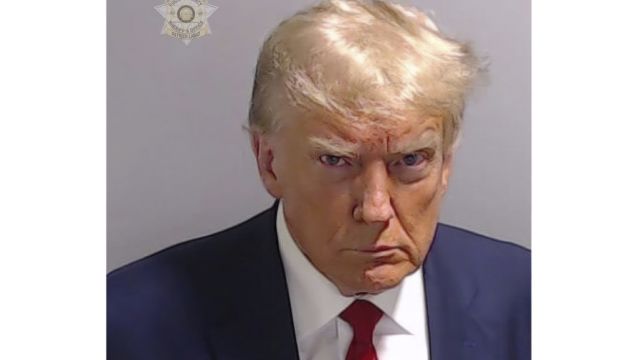Former US president Donald Trump has raised nearly $20 million (€18 million) in the past three weeks, a period that roughly coincides with his indictment in federal and state cases connected to his false claims that the 2020 election was stolen from him, Mr Trump's campaign spokesman said on Saturday.
Since appearing Thursday to have his mug shot taken in a racketeering and fraud case in Atlanta, Georgia, the former president brought in $7.1 million, Trump spokesman Steven Cheung said on X, the platform formerly known as Twitter.
On Friday alone, Mr Trump brought in $4.18 million, making it the highest-grossing day of his campaign so far, Mr Cheung said.
His mug shot, posted by a Georgia courthouse on Thursday evening, has been turned into T-shirts, shot glasses, mugs, posters and even bobblehead dolls by friends and foes alike.
The shot of Mr Trump with a red tie, glistening hair, and an icy scowl was taken as the Republican presidential front-runner was arrested on more than a dozen felony charges, part of a criminal case stemming from his attempts to overturn the 2020 election.
Mr Trump, who was elected president in 2016 but defeated by Democrat Joe Biden in 2020, is again seeking the Republican Party's nomination for president.
Mr Trump is currently facing four indictments, including two related to his false claims that the election was stolen and the January 6th, 2021 attack by his followers on the US Capitol in Washington, DC.
He has denied all charges.
On August 15th, Mr Trump was indicted by a Georgia grand jury after an investigation by Fulton County District Attorney Fani Willis into his efforts to overturn his 2020 election loss to Mr Biden in the state.
On August 3rd, he pleaded not guilty to charges brought by Special Counsel Jack Smith in federal court in Washington that he conspired to defraud the United States by preventing Congress from certifying Biden's 2020 election victory over him and to deprive voters of their right to a fair election.
He has also pleaded not guilty to charges of unlawfully keeping classified documents after leaving office, and of falsifying business records in a case in New York related to the payment of so-called hush money to porn star Stormy Daniels before the 2016 presidential election.







